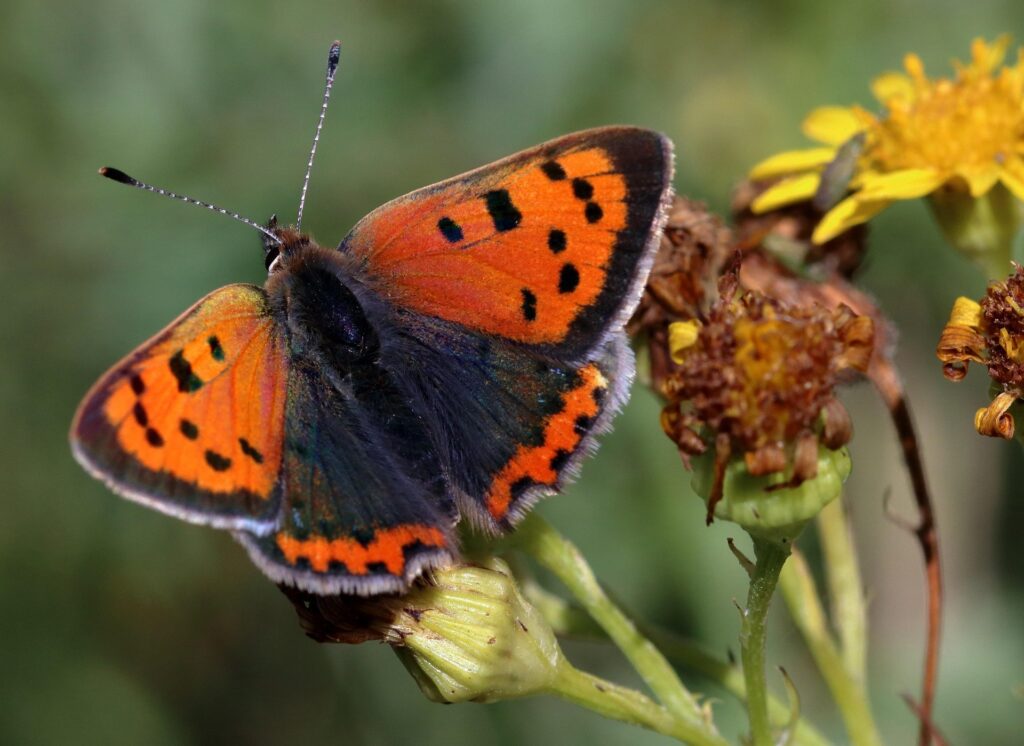
Spring is in full bloom, and across the UK butterfly recorders are back out on their transects, eyes peeled and notebooks ready. These volunteers are doing vital work for the UK Butterfly Monitoring Scheme (UKBMS), and again this year’s findings are ringing alarm bells. 2024 was one of the worst years for butterflies since records began. More than half of UK butterfly species are now in long-term decline.
Among the hardest hit are the Small Tortoiseshell, Chalk Hill Blue, and Small Copper – species that once brought flashes of colour and joy to gardens and wild spaces. The main causes – habitat loss, climate change, and pesticides – are pushing these delicate creatures to the brink.
This season, Butterfly Conservation is inviting us to take simple, hopeful action: let your lawn grow wild. That’s right – be a grower, not a mower! By letting the grass grow long from April to September, you’ll be creating a mini habitat for butterflies and moths right on your doorstep. Pledge your support on Butterfly Conservations’ website and you’ll receive a free guide on managing your lawn for pollinators.
If for any reason you can’t keep your lawn long, can you provide food and shelter for butterflies in your border, or sow a wildflower patch? When planning your borders think wildflowers and nectar-rich plants. The best plants for butterflies and moths are those with large flowers that are easy to land upon. This includes sunflowers and marigolds. Another plant with large flowers that provides nectar for butterflies is Cosmos. Cosmos is sensitive to cold and can be attacked by slugs and snails, but you can get a head start now by sowing it in peat-free compost in a tray on a sunny windowsill or using a propagator and plant it out once the plants are big enough to withstand slug attacks. Our friends at the Community Interest Company Meadow in My Garden offer a beautiful Butterfly Seed Mix.
Every garden, every patch of wild grass, every mindful action matters. Let’s be part of the change this spring.
Our next gathering is on 15th May at 1.30pm at the Town Hall. Mike from Natural Bee Keeping will talk to us about wild honey bees and how to support them in our gardens and green spaces. Book a free space at https://bit.ly/wild-bunch-may-25.

